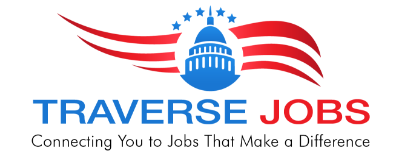| It happens every four years, but this election year may prove to be the biggest twister for the D.C. job market in recent memory. Potential party changeovers in the White House and Senate beg the question to potential job seekers: Are you prepared?
Whether you might be displaced unwillingly or by choice, now is the time to have your resume and LinkedIn profile up-to-date and to be networking in earnest. Here are a four insights on key items to include on your resume: 1. Experience using digital communications and social media platforms, including Facebook, Twitter, YouTube, Instagram, LinkedIn, blogs, etc. So many employers needed to upgrade their online game when COVID hit. Americans are spending a lot more time on their screens looking for news and connecting with their friends and communities. That has made social media communication one of the top — if not THE top — skills valued by employers today. The ability to design and actually upload short but compelling posts, including video, became a vital skill valued by employers in all sectors. Make sure you are illustrating your social media skills and connecting online with your potential employer How to frame your resume: Be sure to highlight any digital accomplishments you have, especially on social media (even something as basic as “500+ connections on LinkedIn” shows engagement), as well as listing any specific editing tools or social media software you can use fluently. 2. Zoom savvy. Previously known as “people skills,” now employers are looking for Zoom savvy professionals who can work their magic online. Unable to host corporate fly ins to meet with Members of Congress, conduct roundtables, or plan industry-wide conferences, employers now look to people who are charming and engaging by digital conference. This is especially the case with fundraisers who need to land donations without the benefit of in-person meetings or offering any of the usual perks afforded major donors, such as meetings with top officials, tours of important D.C. landmarks, or meals at our top restaurants. How to frame your resume: While it is still important to cover any previous successes in fundraising or other people-skill types of experiences, be sure to add data about your activity with the various conferencing apps and how you have used them to keep up your high level of productivity and networking. Be sure to include fluency in specific apps if you feel you truly know your way around the software. 3. Project management. While “managing multiple tasks in a fast-paced environment” has been a fixture in job postings for years, now I am seeing more posts looking for more specific project management skills. Some employers use professional tracking software that they request experience with, or they say things like “work with colleagues across various digital platforms” or “develop and execute an internal communications plan.” If your employer doesn’t use some of the more popular tools like Slack or Microsoft Teams, consider using them with your friends, book club, or volunteer organizations to learn and practice. How to frame your resume: Again, it’s still important to cover previous project management experience, but highlighting how you’ve managed the past six months in a digital environment should be near the top of your resume, and don’t forget to include that skill in your core competencies. 4. Out-of-the-box thinking. What was once the domain of creative job postings in marketing and communications, this skill is now a commonplace request in lobbying, fundraising, and non-profit jobs. Looking for new ways to work with clients, influence public policy, and/or land new donors in a virtual world, employers across the spectrum need people who are trying new ways to connect and approach key organizational objectives when meeting face-to-face is no longer an option. How to frame your resume: Creativity can be hard to make up, but certainly you’ve had some experience(s) in the past six months that illustrate a unique solution to make an impact when the traditional approach was no longer an option. If you aren’t prepared to put something on your resume or it feels clunky to include, be sure to have a few talking points for any potential interview. Most employers will ask about ways you’ve coped during the pandemic. Talking about both things that worked and those that didn’t shows resilience and ingenuity. |

